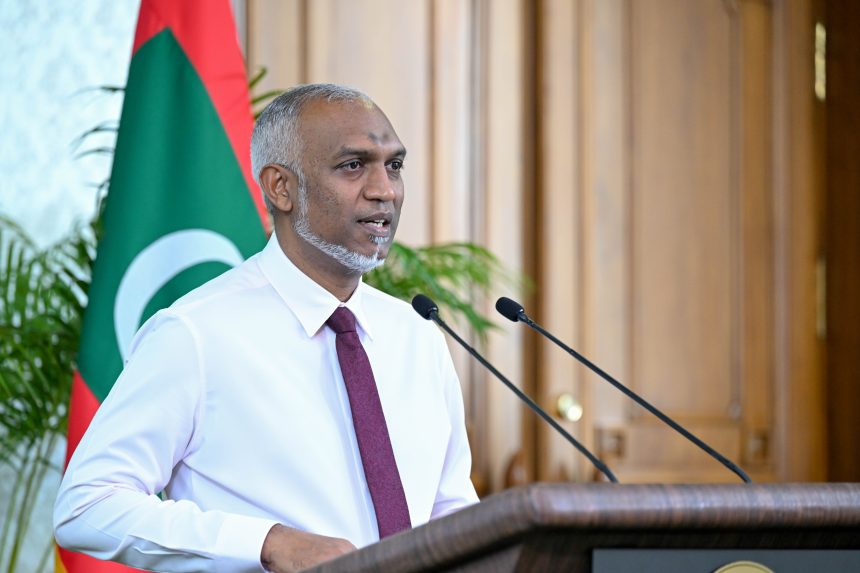In a defining moment of transparency and political will, President Dr. Mohamed Muizzu has publicly acknowledged the long-standing culture of discrimination in the Maldives and extended full support to youth-led calls for justice, equality, and reform.
Speaking at presidential press conference held at the President’s Office, President Muizzu responded directly to a question from the media about the growing public frustration over perceived impunity for the powerful. For nearly every night since mid-April, young protesters have taken to the streets of Malé demanding answers in the suspicious fall of 22-year-old Hawwa Yumnu Rasheed, whose body was found on the roof of a building on April 18.
“This is a culture that has existed among us for generations – the misuse of power by those who possess it,” President Muizzu admitted, addressing the root of public concern. “Discrimination and injustice—these are habits that must change. And I will support anyone who advocates for such change.”
The President’s remarks come as tensions flare over the alleged mishandling of Yumnu’s case, which has captivated the nation and drawn criticism over delays and selective disclosures by law enforcement. Yumnu reportedly attended a private gathering the night before her fall at an apartment within the family residence of Transport Minister Mohamed Ameen. The police’s initial reluctance to disclose the venue’s details raised further suspicion.
Public outrage intensified when it was revealed that several individuals with political connections were present at the party, including two relatives of Minister Ameen and a high-ranking official from the President’s Office—Under Secretary Daud Ahmed Zilal—whose brother, Raudh Ahmed Zilal, is now in custody. Police confirmed Raudh tested positive for cannabis and appeared in CCTV footage from the scene.
Despite Raudh’s detention, many protesters argue that justice is being selectively applied. Allegations range from interference in the investigation to the refusal of party attendees to undergo drug testing.
President Muizzu, who maintained composure while fielding tough questions from the press, emphasized that the path to justice must be paved with transparency and public involvement. “The voices of the youth, their activism, their calls for equality—this is where true reform begins,” he said. “I stand with them.”
He reiterated that the government has no intention of shielding anyone. “Justice must not bow to influence,” he said, assuring the public that the Presidential Commission formed to probe Yumnu’s case would operate free from interference.
President Muizzu’s declaration signals a rare moment of solidarity between the nation’s leadership and its youth—a generation demanding accountability in an era where silence is no longer an option.




